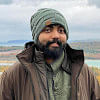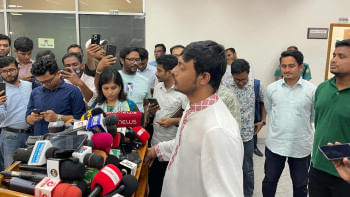Back to robots dabbling in philosophy

Spoiler alert: This review contains major spoilers for season one of Westworld.
Freeze all motor functions because Westworld's second season just finished airing and it's time for you to binge it, if you haven't already.
Just like its predecessor, season two pushes the boundaries of storytelling in the scope of a TV show while weaving a plot ever so complex and fascinating. If you've watched the first one, you definitely shouldn't miss this season where the stakes are bigger and the journey grander.
"Season two starts from where season one leaves us" is a lie. Season two starts from multiple places, one of which may or may not be where season one ended, the massacre inside the park. I wondered, before beginning this season, how Westworld would recreate its signature weapon from the first season: the multiple timelines. The show's perfect execution of this – hiding it in plain sight, scattering the hints all throughout the earlier episodes, the red herrings, the fans researching and creating theories for weeks on end and finally the payoff – was the singular feature that made Westworld so special and popular. But now that we know the trick, they can't simply repeat it. Or can they?
From the get go, this season shows us the extent of the fractured timelines for this season. They turn it from a plot twist to the central mystery. We are shown separate timelines, from the perspective of several key characters. We are then left to wonder what's happening when and how it'll all unfold and fit together.
While last season had the Maze as the primary objective for characters like Dolores and MIB, this season has the Door a.k.a. 'The Valley Beyond'. The Maze was the path to consciousness, achieved through years of suffering. What the Door represents is obscure in the beginning. MIB is told by Ford that it's his follow-up game after the Maze. Dolores, on the other hand, calls it the Valley Beyond and aims to lead the Hosts to it. As the show progresses the significance of the Door is heightened as its pursuers increase.
The story also reveals more about the origin and machinations of the park. We learn of the true intentions of the park, which are dark and peculiarly allegorical to current international and online issues.
Season two tried really hard to stay unique while also including features from season one that the fans adored. They had the critics saying that there was no need for a sequel, that season two would be redundant and a mess. Season two was definitely not that, but did it surpass the first one? It certainly had great character exploration, characteristic philosophical musings, and more fights and bloodshed. But that still couldn't match the sheer originality of the first season. Regardless, it triumphs as one of the best seasons of a TV show I've had the pleasure of watching.
Fatiul Huq Sujoy is a tired soul (mostly because of his frail body) who's patiently waiting for Hagrid to appear and tell him, "Ye're a saiyan, lord commander." Suggest him places to travel and food-ventures to take at fb.com/SyedSujoy.

 For all latest news, follow The Daily Star's Google News channel.
For all latest news, follow The Daily Star's Google News channel. 



Comments